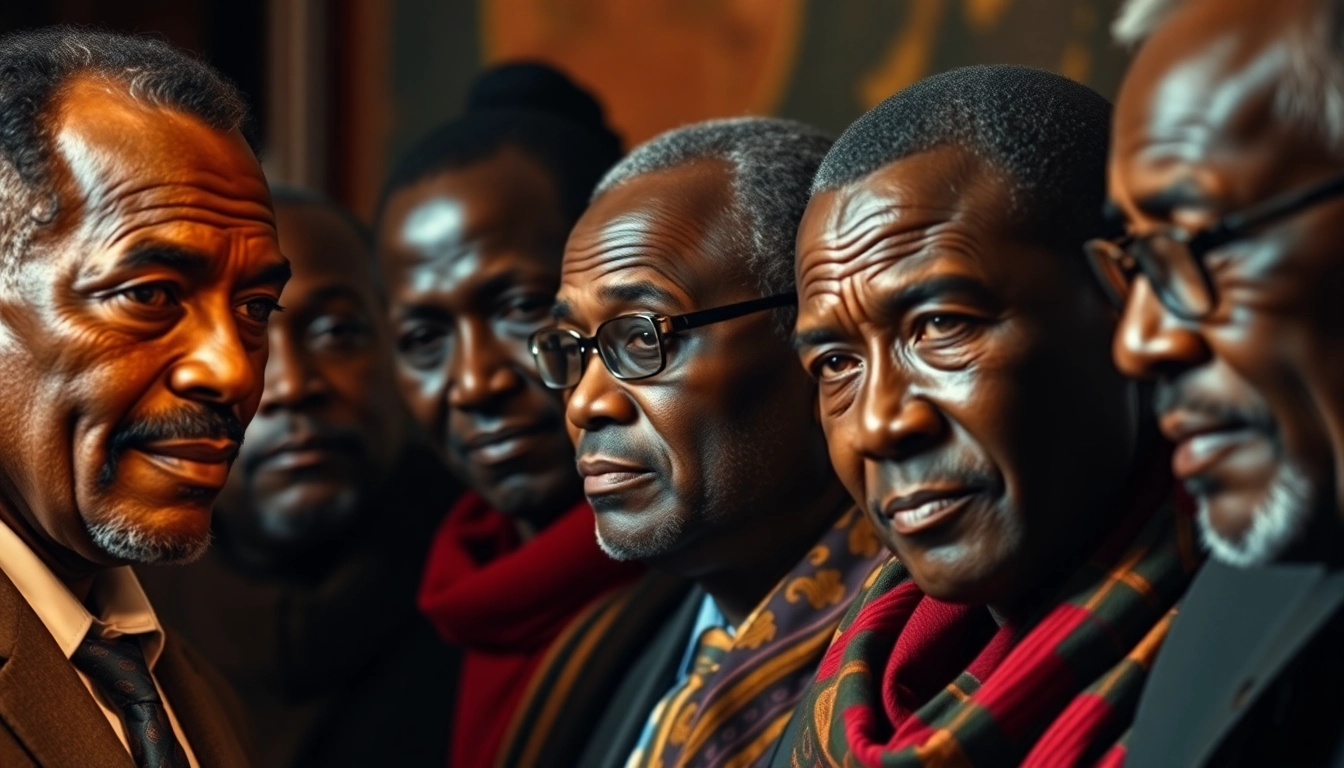Introduction to Russian Influence in Africa
The relationship between Russia and Africa has evolved significantly over the past few decades, marked by an increase in diplomatic, economic, and military engagements. As geopolitical dynamics shift globally, the significance of Russian influence in Africa has grown, with myriad implications for the continent’s future. This article delves into the historical context, current engagements, and the driving forces behind Russia’s strategic interests in Africa.
Historical Context of Russia-Africa Relations
The roots of Russia’s engagement with Africa date back to the Soviet era, where Moscow sought to strengthen ties with newly independent African states as part of its Cold War strategy. The USSR provided military aid, technical assistance, and support for liberation movements across the continent, fostering an ideological bond with various African leaders. Countries like Angola and Mozambique were among the principal beneficiaries of Soviet support, reflecting a deep-seated commitment to anti-colonial struggles.
With the Cold War’s conclusion, Russia’s focus on Africa waned, but the beginning of the 21st century witnessed a resurgence of interest. Vladimir Putin’s government has strategically pivoted to rekindle relations, recognizing Africa’s growing geopolitical significance and resource wealth. The establishment of various forums and partnerships, such as the Russia-Africa Summit in 2019, signaled a reinvigorated commitment to the continent.
Current Economic Engagements
Today, Russia’s economic ties with African nations encompass diverse sectors, including energy, mining, infrastructure, and agriculture. The relationship is characterized by mutually beneficial agreements that provide African countries with investment in critical areas while securing Russia’s access to valuable resources.
For instance, Russia has invested heavily in the oil and gas sector in countries like Nigeria and Libya. Moreover, state-owned enterprises such as Rosatom are actively engaged in nuclear projects, enhancing energy security for African nations. In the mining sector, Russian companies operate in sectors ranging from diamonds in Angola to precious metals in South Africa, emphasizing a growing economic footprint.
Furthermore, military cooperation continues to expand, with Russia exporting arms and providing military training to various African nations, bolstering regional security forces. Numerous agreements illustrate these interactions, which are designed to enhance defense capabilities while forging strategic alliances.
Understanding the Drivers of Russian Influence
Geopolitical Strategies at Play
Russia’s renewed interest in Africa is steeped in a complex geopolitical strategy aimed at counterbalancing Western influence, particularly from the United States and European Union. As Western sanctions have isolated Russia economically, engaging with African nations presents an opportunity to create alternative partnerships that foster mutual development.
Strategically, Africa serves as a critical geopolitical arena where Russia can exert influence and project power. By cultivating strong relationships, Russia aims to create a bloc of countries that support its initiatives in international forums, thereby enhancing its diplomatic leverage. The increasing alignment of several African nations with BRICS—an economic forum involving Brazil, Russia, India, China, and South Africa—further solidifies this intention.
Resource Acquisition and Economic Benefits
Resource acquisition is perhaps the most tangible driver of Russian involvement in Africa. The continent is rich in minerals, oil, and gas—natural resources that Russia aims to secure for its economic stability and growth. Countries such as the Democratic Republic of the Congo (DRC) and Zimbabwe offer vast mineral wealth, and Russian firms are keen to establish operations to capitalize on these resources.
Moreover, the supply of agricultural resources, such as grain and cocoa, plays a significant role in Russian interests. This pursuit aligns with Russia’s broader goal of enhancing food security while simultaneously establishing itself as a key player in global agricultural markets. By increasing its involvement, Russia not only secures essential resources but also strategically positions itself in supply chains that are critical for the global economy.
Military Collaborations and Their Implications
Military collaboration between Russia and African states represents another pivotal area of influence. Through arms deals, military training programs, and security partnerships, Russia seeks to strengthen the defense capabilities of its allies, which also serves its strategic interests in controlling and influencing regions of contention.
For example, countries like the Central African Republic (CAR) and Sudan have benefited from Russian military support, which includes the provision of weapons and training for local forces. In exchange, Russia gains a foothold in regions rich in resources and strategic access points. These military ties are not merely transactional; they often create dependencies that require African nations to align more closely with Russian geopolitical interests.
Case Studies: Key African Nations
Burkina Faso’s Engagement with Russia
Burkina Faso serves as an illustrative case of Russia’s growing influence in Africa. Under the leadership of President Roch Marc Christian Kaboré and his successor, the government has sought partnerships with Russia to address security threats posed by extremist groups. The perceived lack of effective support from traditional Western allies has led to a pivot towards Moscow.
Russia’s provision of military support, training, and arms has found a receptive audience in Burkina Faso, allowing the country to bolster its military capabilities. Additionally, economic partnerships in mining and agriculture have facilitated investments that contribute to national development goals. This relationship underscores the dual benefit of security and economic cooperation, paving the way for deeper ties.
South Africa and the BRICS Connection
As a member of the BRICS coalition, South Africa plays a crucial role in connecting Russia with the entire African continent. South Africa and Russia maintain strong diplomatic ties, facilitating discussions around trade, investment, and technology transfer.
Moreover, South Africa’s strategic position as a trade hub for Africa provides Russia with a gateway to influence over regional economic mechanisms. Joint initiatives in science, technology, and energy have materialized from this partnership, with increasing collaboration in areas such as nuclear energy, where Russia’s expertise aligns with South Africa’s energy development needs.
Nigeria’s Response to Russian Partnerships
Nigeria, one of Africa’s largest economies, presents a more complex picture of Russian influence. While there is engagement in sectors like oil and gas, Nigerian leadership has been cautious, emphasizing that any partnerships with Russia must align with national interests. The Nigerian government has recognized the importance of diversifying its external relations, balancing Western partnerships with opportunities presented by Russia.
However, this cautious approach has not prevented Russia from establishing a presence in the country, with several agreements aimed at enhancing cooperation in areas such as security and oil extraction. The challenge for Nigeria will be to navigate these relationships while protecting its sovereignty and economic interests.
Challenges and Opportunities for Africa
Balancing Dependencies with Sovereignty
As African nations engage more deeply with Russian entities, a fundamental challenge arises: the delicate balance between reaping the benefits of these partnerships and maintaining sovereignty. Several countries may find themselves increasingly dependent on Russian military or economic support, which poses risks in terms of political stability and independence in decision-making.
This dependency has the potential to create geopolitical alignments that may not align with the broader interests of the African continent. Leaders will need to be vigilant in negotiating terms that ensure mutual respect and benefit, circumventing patterns of neocolonialism or exploitation.
Impacts on Local Economies
Engagement with Russian investments and partnerships brings both opportunities and challenges for local economies. On one hand, investments in infrastructure, agriculture, and technology can drive growth and create jobs. On the other hand, there are concerns about the integration of local businesses into these partnerships, with some fearing that foreign investments may prioritize profit over community development.
Moreover, there is a pressing need for transparent governance frameworks that ensure economic benefits trickle down to local communities rather than enriching foreign entities. This will require strong regulatory frameworks and active engagement from civil society to hold governments accountable.
Future Prospects of Russia’s Role in African Development
Looking ahead, the role of Russia in African development will likely expand amid global uncertainties. As many African nations seek to diversify their partnerships beyond traditional Western powers, Russia positions itself as a valuable ally that offers investment and support without the stringent conditions often associated with Western aid.
However, the future will depend on how African leaders negotiate these relationships, ensuring that their involvement translates into equitable development and does not lead to exploitative dependencies. The strategic interests of Africa and Russia must align to foster growth and prosperity for both parties.
Conclusion: The Future of Geopolitical Influence
Potential Scenarios for African Nations
The trajectory of Russian influence in Africa will not be uniform across the continent. Different nations will experience varying degrees of engagement and impact based on their unique circumstances and leadership choices. In some instances, partnerships could catalyze economic growth and security; in others, they may perpetuate cycles of dependency.
Recommendations for African Leadership
To navigate the complexities of Russian influence, African leaders should prioritize transparency, accountability, and community engagement in their dealings with foreign powers. Establishing clear economic policies that protect local interests while attracting foreign investments will be crucial. Additionally, fostering regional cooperation among African nations can strengthen collective bargaining power, allowing for more equitable collaborations with external partners.
Summary of Key Insights on Russian Influence
In summary, Russia’s engagement in Africa signifies a new chapter in the continent’s geopolitical narrative. The historical ties have evolved into a complex web of partnerships that could reshape Africa’s economic landscape. By understanding the opportunities and challenges ahead, African nations have the potential to assert their agency and agency while engaging with global powers including Russia.


